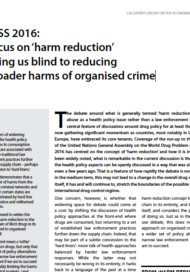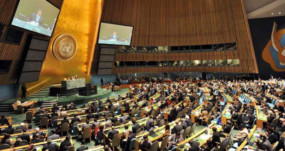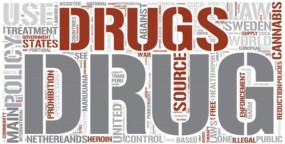Posted on 18 May 2016
Despite the overall positive trend of treating drug abuse as a health policy issue rather than a law enforcement one, a debate which is generally termed “harm reduction”, Dr. Mark Shaw, the Director of the Global Initiative, warns that in the long term this may turn our focus back to hardlined, established law enforcement practices. However, these may be inadequate to respond to transnational organised crime networks and even have counterproductive outcomes: “If the full harms of drug trafficking and use are to be addresses, then a broader understanding of harm reduction must be introduced.”
In his article for the London School of Economics, he makes six broader points:
- The dangers of widening the space for health policy approaches to consumption strategies are associated with a return to traditional law enforcement practices further down the supply chain – perhaps a concession to “hard liners”.
- Evidence demonstrates that a broader set of harms from the growth of criminal networks and violence in certain states are only exacerbated by hard line criminal justice and militarised responses.
- There is a need to widen the scope of harm reduction to the supply chain of illicit drugs in its entirety, and to organised crime itself.
- This does not mean a ‘softer’ approach on drugs, but only that a wider set of policy alternatives beyond narrow law enforcement are required if we are to succeed in sustainably limiting the harms of these illicit markets (and the policies employed to tackle them).
- There is a need to make a linkage betweens security and development issues, not in order to ‘securitise’ development, but in order to protect development interventions from criminal exploitation – and to deliver services where they are needed most.
- As political momentum focuses around UNGASS 2016 and the implementation of the Sustainable Development Goals, there is a potentially unprecedented opportunity to push this debate further.




